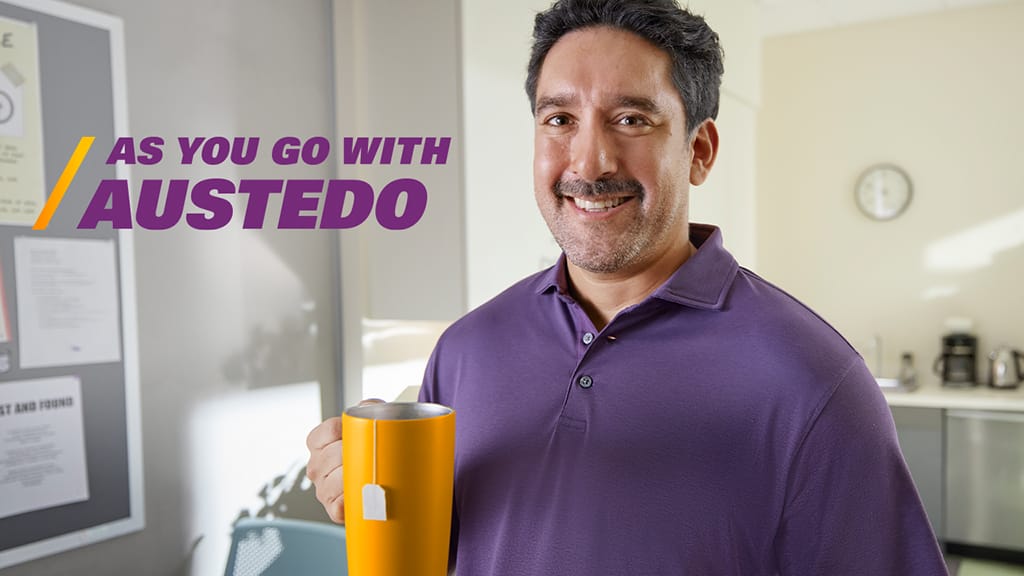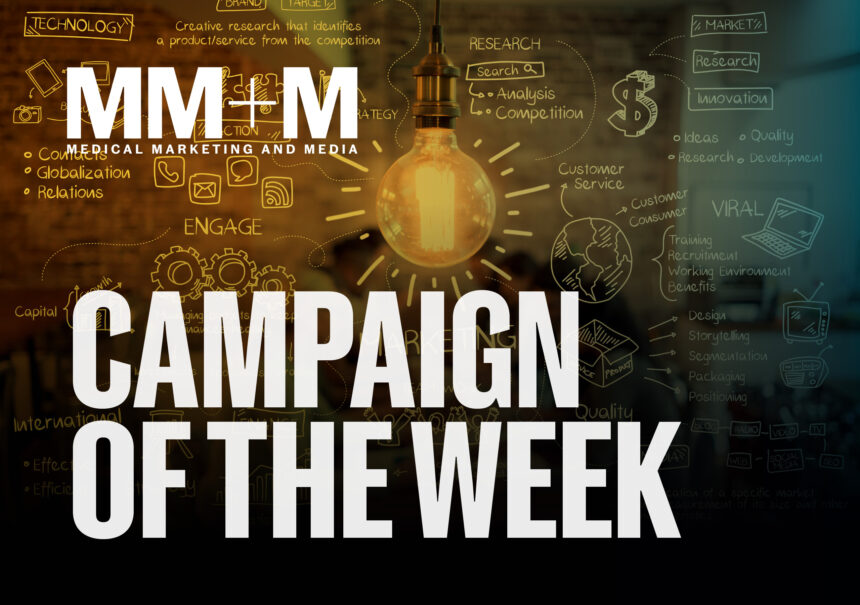Teva Pharmaceuticals has been focused on treating tardive dyskinesia (TD), a side effect of taking medications for mental illness, for some time now.
Around 500,000 patients experience TD, with symptoms including uncontrolled movements in their body and face.
One in four people taking antipsychotic (neuroleptic) medications will develop it, according to estimates by the Cleveland Clinic, but Teva places the number higher at around 785,000 and estimates that some 85% of TD cases are undiagnosed.
Fortunately for this sizable patient population, the Food and Drug Administration approved Austedo XR from Teva just over a year ago.
Now, the Israeli drugmaker has debuted two spots to introduce the new version of its flagship product to consumers.
To help patients and HCPs recognize TD, Teva created two spots focused on “Kate” and “Dan,” characters who have TD.
The pair are shown on their journey from TD interfering with their daily activities to walking steadily with an orange travel mug filled with hot coffee in hand.
We see part of their daily routine from Kate or Dan’s perspective, either walking through a park or engaging with students in a classroom.
It’s Not OK followup
This is not Teva’s first campaign focused on Austedo’s ability to control TD.
Three years ago, Teva’s It’s Not OK effort took a similar patient-centric approach that highlighted how the successful treatment of TD can help keep patients on their mental-health medications.
“We obviously wanted to take the learnings from our first campaign and apply them here,” says Nina DeLucia, director of consumer brand marketing with Teva, whose team led the Austedo campaign. “Some of those were that patients wanted to see something that felt real, authentic and relatable in terms of what they were seeing within the ad itself. Both ads are meant to show people what TD is and to put a name to it so folks can say, ‘That’s something that I might have.’”
In addition to the slice of life approach with a look into the experience of a person living with TD, both ads feature an orange travel mug, filled with coffee. As Kate and Dan carry it without any unexpected movements, it becomes a symbol of life with TD under control.
Per Elizabeth Rooney, executive creative director with Eversana Intouch, Teva’s agency partner, the mug takes on an even larger significance and resonated with viewers of the spots, according to agency research.
“[The mug is a] travel buddy witnessing the positive accomplishments and strides through life,” she says. “It shows the overall benefit of what life can be when you’re not withdrawn and when you feel confident with steady movements. It is also this kind of character that demonstrates the steadiness of the product and the impact of treating most movements [associated with TD].”
Of note, the orange of the mug is one of the Austedo brand colors.
Jingle all the way
Another tool the Austedo team chose to use is a classic of marketing: the jingle.
The two spots end with a voiceover singing the musical message, “As you go with Austedo.”
Jingles are always helpful for brand recall, with Rooney adding that the jingle as a tool can play a special role in marketing healthcare products.
“For pharma in general, it might be weeks or longer before you can even talk to your healthcare provider,” she says. “So that brand recall is important. In terms of all of the kinds of tools that we have at our disposal, a jingle is one of the most powerful ways to create that stickiness and that brand recall.”
DeLucia sees marketing around mental health as presenting different challenges than some other classes of drugs and believes the Kate and Dan spots have hit the right notes.

“If you think about diabetes, cholesterol or weight loss management, you take your medicine and hopefully you see results right away,” she says. “The mental health journey is not as defined in such a measurable way. It definitely lends to its own terms of challenges in terms of how we market and approach it.”
Both DeLucia and Rooney note that the experience of shame is unfortunately a common one among people with TD, but they share that it was a marketing strategy that the Teva and Eversana Intouch teams didn’t want to pursue.
“I love this sense of moving from moments of joy to others with a mastery of movements,” Rooney says. “I feel like this campaign infuses a sense of optimism and opportunity.”
DeLucia succinctly sums up the message she hopes consumers will take from the spots: “There’s good news, it’s treatable. So name it and then know that there’s something that you can do about it.”







